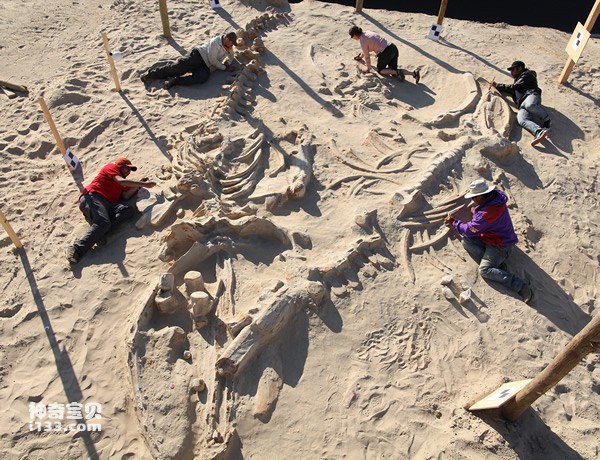Mass strandings of marine mammals have occurred for millions of years, but their origins have been explained differently. Causes of pre-human strandings have been attributed to herding behavior, large ocean fronts and harmful algal blooms (red tides). Algal toxins cause organ failure in marine mammals, and red tides are the most common cause of mass shedding, with widespread geographic and taxonomic impacts. There is potential for toxin-mediated deaths of marine food webs to occur on geological time scales, but direct evidence for their fossils has been lacking.

Paleontologists discover fossilized mass stranding of marine mammals
American paleontologist Nicholas D. Pyenson and others described an unusual dense accumulation of marine vertebrate fossils in the late Miocene at Cerro ballena in the Atacama region of Chile, preserving more than 40 skeletons of fin whales, sperm whales, seals, walrus whales, aquatic sloths and carnivorous bony fish. Marine mammal skeletons are distributed across four discrete sites, representing a cyclic accumulation mechanism. Taphonomic analysis points to strong spatial focusing as a mechanism for rapid death at sea, with burial within a protected supratidal barrier.
In the modern setting, red tides are the only known recurring natural cause, which suggests that upwelling zones elsewhere in the world should maintain similar patterns and densities of fossilized marine vertebrates.
animal tags:
We created this article in conjunction with AI technology, then made sure it was fact-checked and edited by a Animals Top editor.